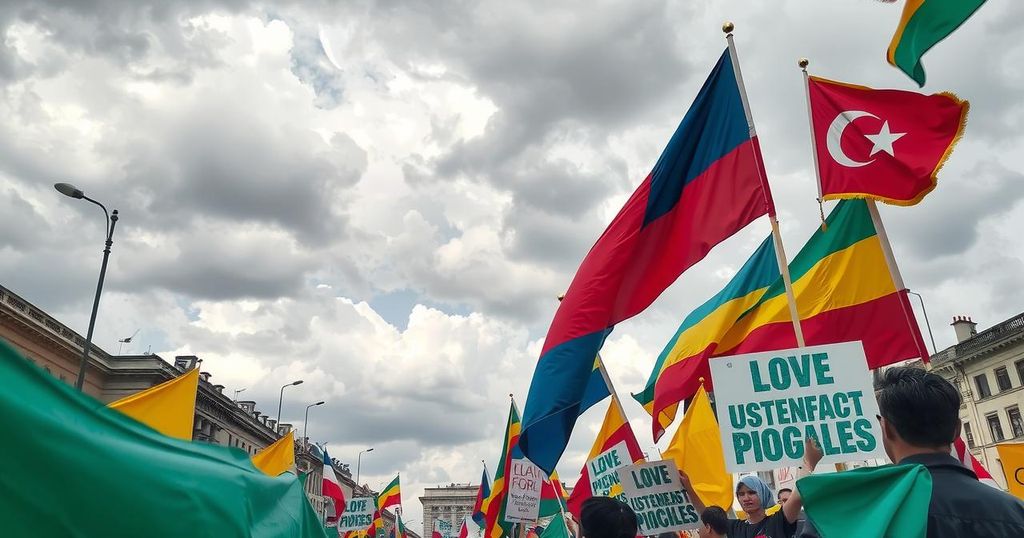Trump Administration Appeals Supreme Court for Deportation Authority Under Wartime Law
The Trump administration seeks Supreme Court approval to resume deporting Venezuelan migrants under the Alien Enemies Act, following a federal court’s temporary ban. The administration argues against judicial interference in diplomatic processes, while the ACLU defends the rights of detained migrants. Judge Boasberg emphasizes the need for due process, amid rising tensions between the executive and judicial branches.
On Friday, the Trump administration appealed to the Supreme Court to allow the deportation of Venezuelan migrants to El Salvador, referencing an 18th-century wartime law. This appeal follows the denial of a prior request by the administration to the federal appeals court in Washington, which upheld a temporary ban on deportations imposed by a panel of judges.
The Justice Department contends that federal courts should abstain from interfering in sensitive diplomatic dealings, suggesting that the detained migrants should seek redress in Texas federal courts. U.S. District Judge James E. Boasberg issued the initial order to block deportations, emphasizing the need for legal proceedings before such actions can take place.
President Trump has invoked the Alien Enemies Act to justify deportations targeting what he describes as the Tren de Aragua gang, likening them to an invading force. Acting Solicitor General Sarah Harris argued in court filings that the district court’s decisions undermine the President’s authority to protect national security through effective foreign policy measures.
A lawsuit initiated by the American Civil Liberties Union on behalf of five Venezuelan noncitizens claims that individuals in detention must be allowed to contest their deportation status. The court has mandated a response from the ACLU by Tuesday, as this case continues to stir controversy between the executive branch and federal judiciary.
After Judge Boasberg’s temporary suspension of deportations, he ordered the return of Venezuelan immigrants to the United States, which has not yet occurred. He expressed concerns about potential noncompliance with his order and criticized the administration’s use of the “state secrets privilege” to withhold information regarding the deportations.
The administration’s actions have sparked calls from Trump and associates for the impeachment of Judge Boasberg. In a notable statement, Chief Justice John Roberts expressed that “impeachment is not an appropriate response to disagreement concerning a judicial decision.” Furthermore, the Alien Enemies Act permits the deportation of noncitizens without a hearing, but Boasberg ruled that individuals must have a chance to dispute their alleged gang affiliation, highlighting the significant public interest in preventing erroneous deportations based on unchallengeable labels.
The Trump administration’s request to the Supreme Court emphasizes ongoing tensions regarding deportations of Venezuelan migrants under the Alien Enemies Act. The controversy has sparked legal battles, highlighting the rights of migrants and the boundaries of executive power. Judge Boasberg’s rulings underscore the importance of due process and the need for transparency in deportation proceedings, while the broader implications of this case continue to unfold amid internal and judicial disputes.
Original Source: www.pbs.org








Post Comment